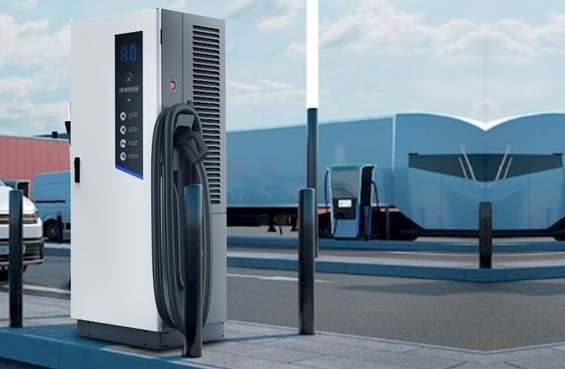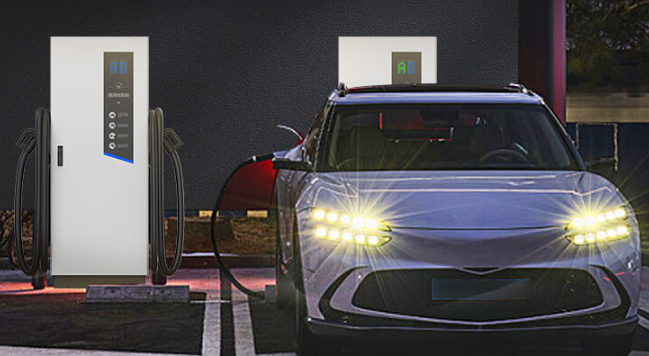
Products
Fast, Reliable, Everywhere

Solutions
Efficient, Innovative EV Charging Solutions.
News
We are committed to the innovation and application of EV charging.
The shift toward electric mobility is a pivotal stride towards a more sustainable and environmentally conscious future. Electric vehicles (EVs) provide a cleaner and more eco-friendly alternative to conventional gasoline-powered automobiles, contributing to a reduction in greenhouse gas emissions and a decreased reliance on fossil fuels. Nonetheless, achieving widespread EV adoption is contingent upon the establishment of a robust charging infrastructure.

Here comes PIWIN, a dynamic and influential participant in the domain of DC EV charging stations. PIWIN occupies a leading position in the field of innovation, with a steadfast commitment to improving the accessibility and effectiveness of EV charging solutions.
PIWIN offers a comprehensive range of DC EV charging solutions tailored to meet diverse charging requirements. Our product lineup includes fast chargers with power outputs spanning from 60 kW to 240 kW, rendering them compatible with a wide array of EVs. These chargers are equipped with cutting-edge technologies, such as high-efficiency power conversion, advanced cooling systems, and compatibility with various connector types.
PIWIN's DC chargers are renowned for their remarkable rapid-charging capabilities, enabling EVs to gain between 3 to 20 miles of range per minute. Achieving an 80% charge takes merely 20 minutes. Our chargers leverage state-of-the-art power electronics and high-voltage designs, surpassing the charging speeds offered by traditional AC chargers. This feature is instrumental in reducing wait times at charging stations, making EVs more appealing to consumers and expediting the transition to electric mobility.
Safety is a paramount consideration in our chargers, and our systems incorporate a comprehensive array of protective measures. These include input over/under voltage protection, output over-voltage protection, output over-current protection, insulation detection protection, battery reverse connection protection, short-circuit protection, charging pile over-temperature protection, charging gun over-temperature protection, access control protection, emergency stop protection, leakage protection, and overcharge protection.
At PIWIN, we place a strong emphasis on enhancing the user experience. Our chargers feature intuitive touchscreen interfaces, simplifying the charging process for users. Furthermore, we provide real-time charging status updates through mobile apps, empowering EV owners to remotely monitor their vehicles. This user-centric approach greatly enhances convenience and accessibility.
In urban areas, PIWIN's DC EV chargers have played a pivotal role in accelerating the adoption of electric vehicles. Through strategic placement in key locations such as shopping centers, parking lots, and business districts, we have effectively alleviated "range anxiety" among EV users. This convenience has spurred higher rates of EV adoption, contributing to a reduction in urban air pollution and fostering a more sustainable transportation ecosystem.
PIWIN's DC chargers have made a significant impact in rural areas where access to traditional fueling stations is limited. In such regions, our chargers have facilitated rural electrification and supported the growth of e-mobility. Farmers, businesses, and residents in remote areas now have access to reliable and fast charging infrastructure, making electric vehicles a viable transportation option and promoting economic development.
PIWIN Energy stands as a leading and dependable global provider of EV charging stations. With a strong presence across Europe, the United States, and the Middle East, we deliver not only smart AC EV charging solutions but also fast-charging solutions to customers worldwide, furthering the cause of sustainable transportation.
DC EV charging stations play a crucial role in the global battle against climate change, offering a substantial reduction in greenhouse gas emissions compared to their gasoline-powered counterparts. PIWIN's DC charging solutions further amplify this environmental impact by facilitating faster and more efficient charging, encouraging greater EV adoption. With reduced charging times and improved accessibility, more individuals are inclined to choose eco-friendly EVs as their primary mode of transportation, significantly contributing to carbon emissions reduction.
Sustainability is deeply ingrained in every facet of PIWIN's operations. From responsibly sourcing materials to eco-conscious manufacturing processes, we prioritize environmentally friendly practices. Our commitment extends to sustainable business practices, including energy reduction, waste minimization, and the adoption of renewable energy sources in our facilities. By adhering to these principles, we ensure that our products and services align with our environmental responsibility, further enhancing the sustainability of the electric mobility ecosystem.

PIWIN's charging solutions have a far-reaching impact beyond individual EV users. They contribute to a wider societal transformation. With the proliferation of EVs on our roads, urban environments experience reduced air pollution, leading to cleaner air and healthier communities. Electric vehicles also significantly diminish noise pollution in our streets due to their quiet operation. Furthermore, the increased adoption of EVs reduces our reliance on fossil fuels, bolstering energy security and mitigating the environmental repercussions associated with conventional fuel extraction and consumption. PIWIN's unwavering commitment to sustainability aligns harmoniously with these broader societal benefits, nurturing a cleaner, quieter, and more sustainable future for all.
PIWIN is committed to maintaining its position at the vanguard of innovation by spearheading the development of next-generation charging technologies. These innovations encompass swifter charging solutions, heightened energy efficiency, and enriched user experiences.
PIWIN is charting a course toward forming strategic collaborations and partnerships with leading automakers, energy providers, and technology firms. This collaborative approach aims to establish holistic and interconnected solutions for the evolving landscape of e-mobility.
PIWIN is set to extend its global reach, introducing its state-of-the-art charging solutions to an even broader spectrum of regions. This expansion aligns seamlessly with the overarching objective of nurturing sustainable e-mobility on a global scale.
In conclusion, PIWIN's DC EV charging stations stand as a beacon of progress in the journey toward sustainable and electrified mobility. With an unwavering commitment to innovation, accessibility, and environmental responsibility, PIWIN plays a pivotal role in reducing carbon footprints, fostering cleaner air, and driving the global transition to electric vehicles. As they continue to surmount challenges and pioneer advancements, PIWIN's vision of a greener and more interconnected future for e-mobility shines ever brighter, empowering us all to embrace the electric road ahead.
